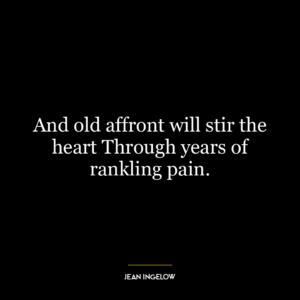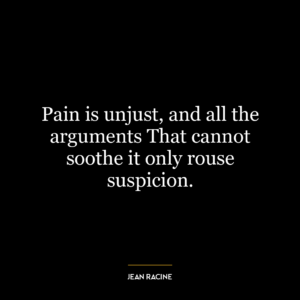This quote asserts that, ultimately, we are the ones responsible for the pain we experience. It suggests that our reactions, perceptions, and interpretations of events and people’s actions are what truly cause us pain, not the events or actions themselves. It’s a call to self-awareness and introspection, pointing out that our inner world – our thoughts, beliefs, and attitudes – can shape our emotional experiences more than external circumstances.
Let’s take an example. Suppose someone insults you. The words themselves are just sounds, but it’s your interpretation of those sounds – your belief that you have been disrespected, your judgment that the other person is wrong or bad, your conviction that you should be treated better – that cause you to feel hurt. If you didn’t hold these beliefs or judgments, or if you chose not to dwell on the insult, you wouldn’t feel the same degree of pain.
In today’s world, this idea is particularly relevant due to the prevalence of social media and online interactions, where negative comments and criticisms are common. If we internalize every negative comment or take every criticism to heart, we may end up feeling constantly hurt and attacked. But if we recognize that we have the power to choose how we interpret and respond to these comments, we can protect our emotional well-being.
In terms of personal development, this quote emphasizes the importance of developing emotional resilience and self-awareness. It suggests that by understanding our emotional triggers and learning to manage our reactions, we can reduce unnecessary suffering. It also highlights the value of self-compassion and forgiveness. By being gentler with ourselves, we can minimize the pain we cause ourselves through self-criticism and regret.
In essence, the quote is a reminder that we have more control over our emotional experiences than we often realize. It’s not about blaming ourselves for feeling pain, but about recognizing our power to influence our own emotional well-being.








